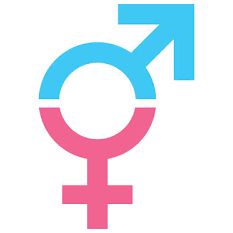The Thin Line Between Feminism and Misandry

The Thin Line Between Feminism and Misandry

By: Bamgbose Adedamola
Feminism was born out of a need,a cry against centuries of gender-based oppression, exclusion, and silence. At its core, it is a movement for equality, not superiority. But somewhere along the way, a loud minority has begun to blur the line between advocacy and antagonism, turning feminism into something it was never meant to be. This confusion has opened the door to misandry (the hatred or prejudice against men)and it threatens to discredit the very movement that gave women a voice.
Today, many men now believe feminism equals misandry,and that is far from the truth. Feminism, in its truest form, is not a declaration of war on men. It’s a fight for fairness,for the right of women to live freely, speak boldly, and be valued equally in society. But when feminism is hijacked by those who promote male-hate under the banner of “female empowerment,” it damages the cause for everyone and especially for real feminists.
Yes, it must be said: there are women who mistake misandry for feminism. They believe being a feminist means rejecting men completely, expressing hostility toward them, and embracing bitterness in the name of progress. This is not feminism. This is a toxic offshoot that should not define a movement that has opened doors, changed laws, and reshaped cultures for the better.
One of the most harmful stereotypes is that feminists don’t get into romantic relationships, or that they hate the idea of marriage and family. That’s simply false. Feminists fall in love. They get married to men. They raise children. Feminism does not forbid partnership,it demands that partnerships be rooted in respect, not dominance.
The idea that you must hate men to be a feminist is not just inaccurate,it’s dangerous. It drives away potential allies, silences meaningful conversations, and makes the feminist movement seem hostile rather than hopeful. Feminism should not feel like a weapon; it should feel like a shield,a defense of dignity, autonomy, and mutual respect for all.
The feminist movement must be careful not to lose its moral center. If we silence or shame people for being male rather than holding systems accountable, we risk alienating supporters and undermining our own credibility. Equality demands unity — not division.
The truth is: feminism and misandry are not twins; they’re not even cousins. Feminism wants equal seats at the table. Misandry wants men removed from the room. That distinction must be made, loudly and often.
Let’s return to the roots of feminism — to Audre Lorde, to Chimamanda Ngozi Adichie, to every woman who ever said, “I deserve better, and so do you.” Let’s build bridges, not burn them. Because the true power of feminism lies not in tearing men down, but in lifting everyone up.






